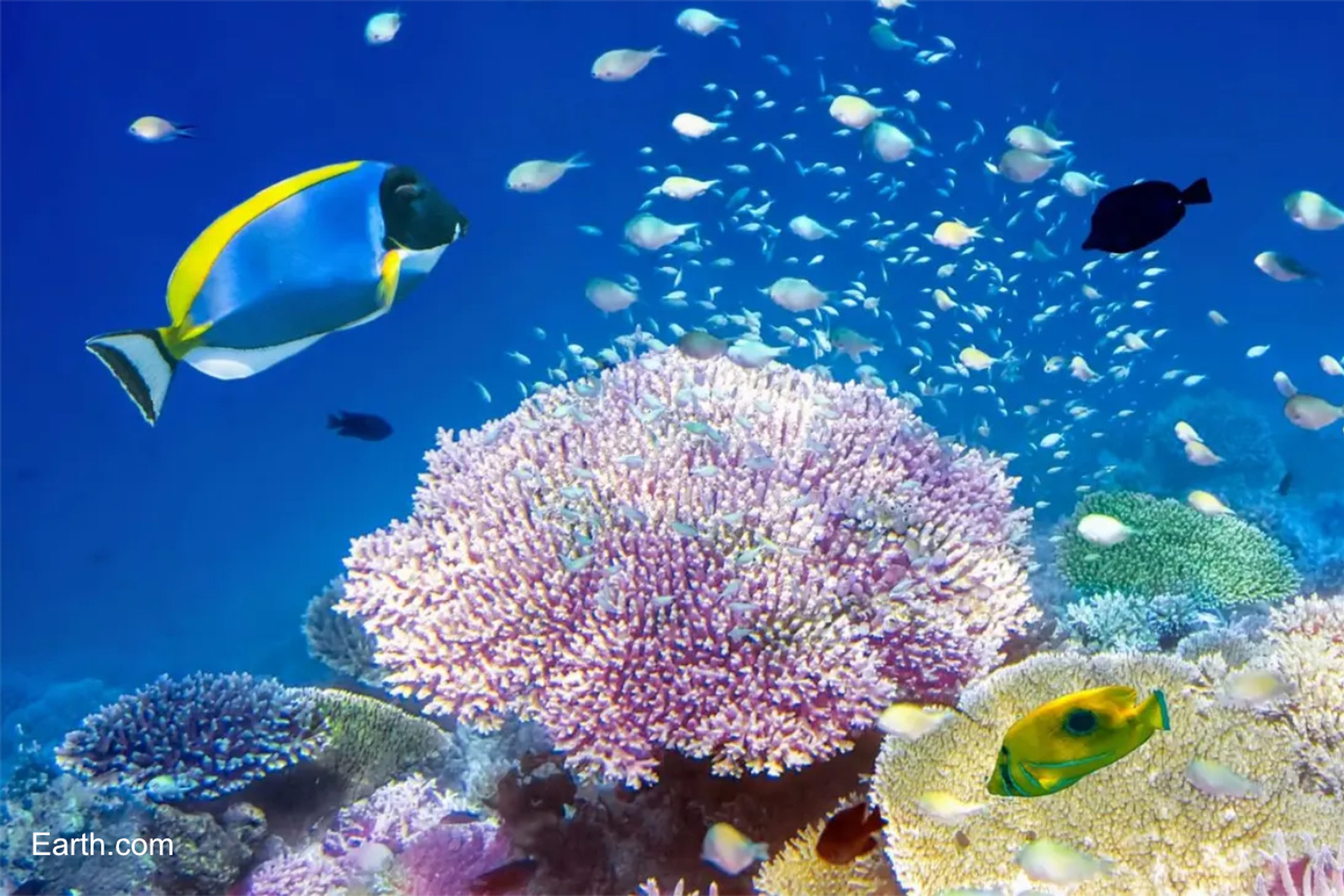Healthy reef sounds inspire coral larvae growth

Coral reefs, essential ecosystems supporting marine life and over a billion human lives, face threats from overfishing, tourism, coastal construction, nutrient runoff, and climate change. A recent study offers hope: scientists used the sounds of healthy reefs to attract coral larvae, encouraging their settlement and growth. At the Woods Hole Oceanographic Institution, researchers found that the acoustic cues of a thriving reef inspired golf ball coral larvae to settle. This "acoustic enrichment" technique proved effective for two coral species and shows potential for broader reef restoration efforts. Coral larvae rely on environmental cues, including the distinctive sounds of healthy reefs, to choose their habitat. These vibrant sounds, contrasting with the silence of damaged reefs, guide larvae to areas where they can grow, demonstrating an innovative approach to restoring these crucial ecosystems.
In a 2022 experiment, researchers led by Nadège Aoki collected golf ball coral larvae in the U.S. Virgin Islands and tested whether healthy reef sounds could encourage settlement. Using a solar-powered speaker in one of two quiet bays, they found that 30% of larvae exposed to reef sounds settled within 24 hours, increasing to 73–85% by 48 hours. A similar tank experiment confirmed the findings, showing higher settlement rates within the critical first 36 hours of larvae being released. Beyond this window, larvae settled regardless of sound cues, indicating a time-sensitive process. Marine biologist Aran Mooney emphasized the urgency, noting that golf ball corals, limited by their short larval stage, must settle within 8–36 hours of release.
Sound cues are vital for coral larvae during their early settlement stages, but their importance diminishes as time runs out, prompting larvae to settle anywhere. Research by Nadège Aoki and her team highlights the complexity of coral biology, with species differing in reproductive strategies and larval periods. The study also found corals respond to sound cues even in less-than-ideal tank environments, simplifying coral reproduction in land-based nurseries. While no universal solution exists for all coral species, combining acoustic enrichment with a deep understanding of local ecology and coral biology shows promise. Senior researcher Aran Mooney emphasized that scaling this approach requires integration with broader conservation efforts, as simply playing sounds in the ocean is insufficient. This innovative technique underscores how coral reefs’ natural symphony can guide restoration efforts. To learn more, read Rodielon Putol’s article on Earth.com https://www.earth.com/news/healthy-reef-sounds-inspire-coral-larvae-growth/